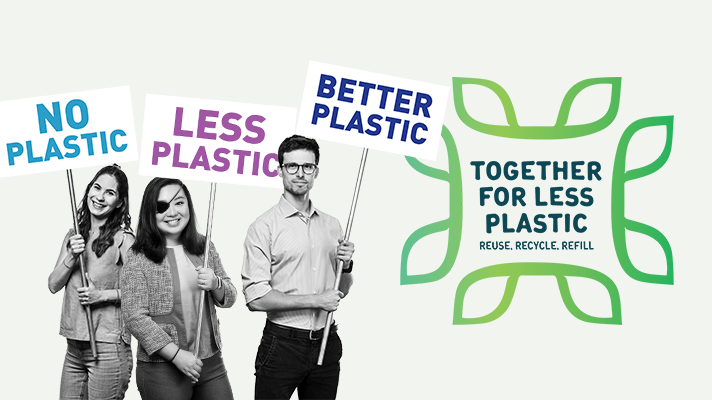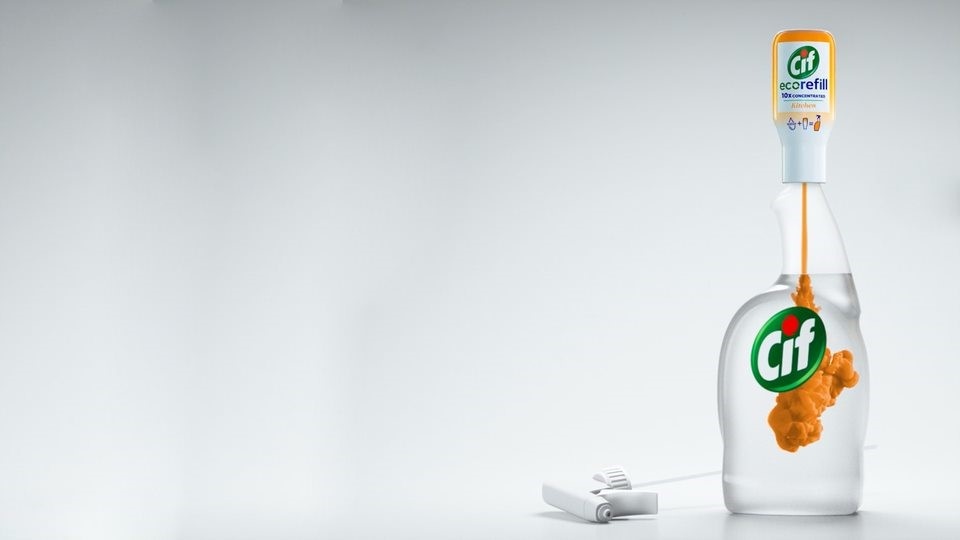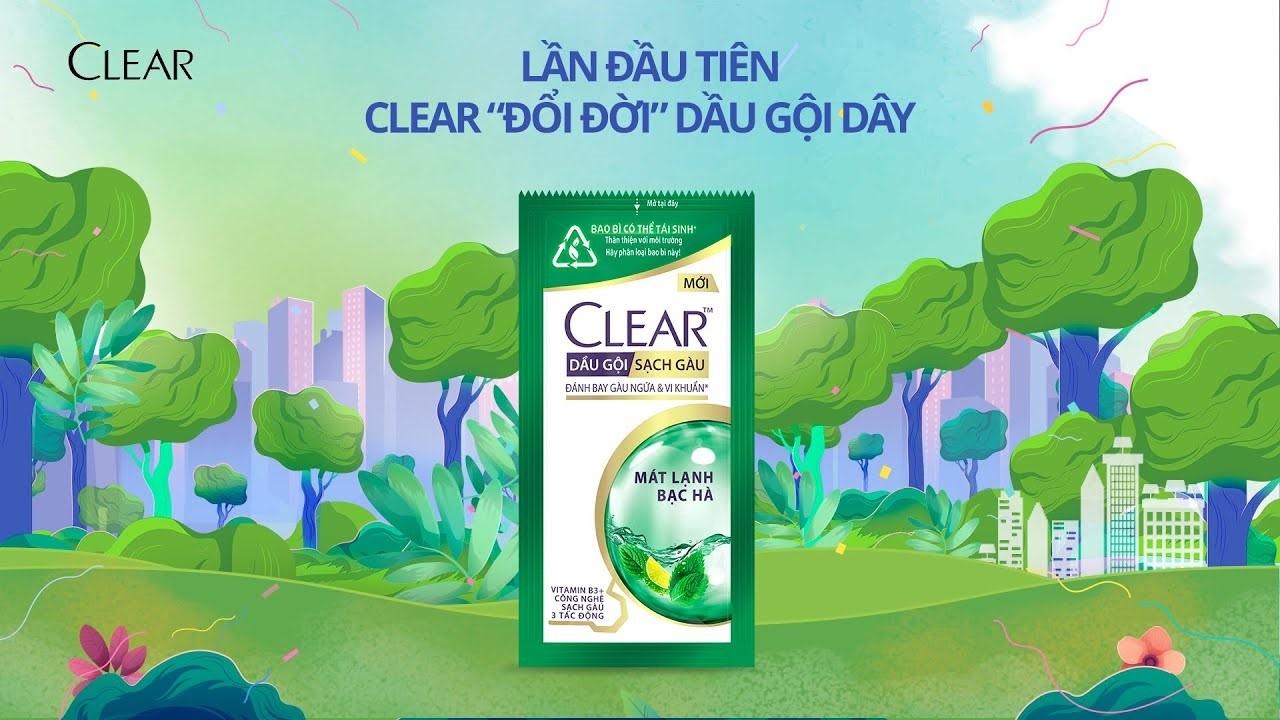Unilever moves towards a waste-free world with “Less plastic, better plastic, no plastic”
One of the initiatives to drive this commitment is plastic waste management through the “Less plastic, better plastic, no plastic” model, contributing to a Vietnam with no plastic waste in the environment and heading to a waste-free world.
Tackling plastic pollution with a firm action plan
According to the Ministry of Natural Resources and Environment (MoNRE), there are approximately 1.8 million tonnes of plastic waste discharged into the environment each year in Vietnam, nearly 1 million tonnes of which goes into the sea – but only 27 per cent of this is recycled and utilised by facilities and businesses.
| Bringing “better plastic” to life, Unilever’s packaging structures have been renovated to be recyclable while maintaining quality. |
Up to 90 per cent of plastic waste in Vietnam is released and buried in the landfill, or incinerated, only 10 per cent is recycled. Additionally, the government is considering revising future laws that impose a high tax on the environment to mitigate the impact of plastic waste on daily life.
As a leading consumer goods corporation and the pioneer in collaborating with MoNRE to initiate and drive Circular Economy in Plastic Waste Management in Vietnam, Unilever Vietnam is constantly promoting its sustainable plastic management strategy, aiming for a waste-free world.
The company focuses on recyclable packaging solutions, the reduction of plastic used in manufacturing, the increase of the use of recycled plastic, as well as collecting and processing plastic waste through three specific commitments by 2025.
The commitments are that all plastic packaging is recyclable, reusable or compostable; a 50 per cent reduction of plastic use in production through reducing virgin plastic use and increasing post-consumer recycled plastic (PCR) use; and collecting and processing more plastic waste than the plastic amount the company sells.
Unilever Vietnam has implemented the “Less plastic, better plastic, no plastic” model to fulfil these commitments.
“We focus on ensuring that everything we produce is recyclable. Besides that, we must maximise the use of recycled materials because every time we do so, we will reduce using virgin plastic,” said Nguyen Thi Bich Van, chairwoman at Unilever Vietnam.
 |
| The “Less plastic, better plastic, no plastic” is one of Unilever Vietnam’s sustainability campaigns |
Optimistic progress
To use less plastic, bottles from many brands, including those by Sunlight, Comfort, and Love Beauty & Planet, are made entirely from PCR plastic.
Comfort, Sunlight, Tresemme, Love Beauty & Planet, Dove, and Sunsilk also encourage customers to participate in product refills. Besides this, product concentration also contributes to using less plastic in packaging production.
 |
| Product concentration helps use less plastic in packaging production |
Bringing “better plastic” to life, Unilever’s packaging structures have been renovated to be recyclable while maintaining quality.
For instance, CLEAR’s shampoo sachets are made from homogenous polyethene plastic with mono-material and Smartsense™ technology, which facilitates the packaging recyclability.
 |
| CLEAR’s shampoo sachet packing is the first-of-its-kind recycled sachet in Vietnam |
Finally, to move towards “no plastic”, Unilever has launched a range of products to the market, such as soap bars, replaceable deodorant sticks, bamboo brushes, and so on.
Until now, 62 per cent of the company’s plastic packaging is currently recyclable, reusable or compostable; there was a 55 per cent plastic reduction in production through reducing virgin plastic use and increasing PCR plastic use; and 100 per cent of product packaging uses PCR plastic.
Additionally, Unilever Vietnam is actively promoting waste segregation at the source (SAS) and plastic waste collection through establishing SAS and collection systems in Hanoi. Unilever Vietnam has collected 6,500 tonnes of plastic waste.
What the stars mean:
★ Poor ★ ★ Promising ★★★ Good ★★★★ Very good ★★★★★ Exceptional
 Tag:
Tag:
Related Contents
Latest News
More News
- Masan Consumer names new deputy CEO to drive foods and beverages growth (February 23, 2026 | 20:52)
- Myriad risks ahead, but ones Vietnam can confront (February 20, 2026 | 15:02)
- Vietnam making the leap into AI and semiconductors (February 20, 2026 | 09:37)
- Funding must be activated for semiconductor success (February 20, 2026 | 09:20)
- Resilience as new benchmark for smarter infrastructure (February 19, 2026 | 20:35)
- A golden time to shine within ASEAN (February 19, 2026 | 20:22)
- Vietnam’s pivotal year for advancing sustainability (February 19, 2026 | 08:44)
- Strengthening the core role of industry and trade (February 19, 2026 | 08:35)
- Future orientations for healthcare improvements (February 19, 2026 | 08:29)
- Infrastructure orientations suitable for a new chapter (February 19, 2026 | 08:15)



























 Mobile Version
Mobile Version